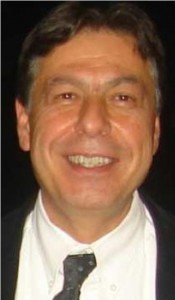 Levent Toppare is a professor of chemistry at the Department of Chemistry, Department of Polymer Science and Technology and Department of Biotechnology in Middle East Technical University with an expertise in electrochemistry. He is also a member of Center for Solar Energy Research and Applications (GÜNAM). His research interests include conducting polymers and his group has recently been involved in electrochromism, electrochromic devices and photovoltaic cells. Toppare obtained his PhD (1982) degree from METU. He has published over 300 scientific papers and he is the recipient of British Council, Fulbright and Alexander von Humboldt Scholarships. Please follow the links for further information on the Toppare group and his recent paper in Polymer Chemistry.
Levent Toppare is a professor of chemistry at the Department of Chemistry, Department of Polymer Science and Technology and Department of Biotechnology in Middle East Technical University with an expertise in electrochemistry. He is also a member of Center for Solar Energy Research and Applications (GÜNAM). His research interests include conducting polymers and his group has recently been involved in electrochromism, electrochromic devices and photovoltaic cells. Toppare obtained his PhD (1982) degree from METU. He has published over 300 scientific papers and he is the recipient of British Council, Fulbright and Alexander von Humboldt Scholarships. Please follow the links for further information on the Toppare group and his recent paper in Polymer Chemistry.
What was your inspiration in becoming a chemist?
My High School Chemistry teacher, rest in peace, had an important impact on me in deciding to become a Faculty member in Chemistry. I consulted the Chairman of the Department of Chemistry and Chemical Engineering at METU when I was an 11th grade student, and finally decided on studying Chemistry at the Department of Chemistry, METU.
What was the motivation behind the research in your recent Polymer Chemistry paper?
Actually, we were invited by the editor to submit a paper. He very much liked our paper and its content on the electrochromism of polymers published in Chemical Communications.
Why did you choose Polymer Chemistry to publish your work?
We believe it will turn out to be a very high impact factor journal soon. Besides returning Prof. Haddleton’s offer would not be polite.
In which upcoming conferences may our readers meet you?
We recently developed a new laboratory on organic Solar Cells; we anticipate revealing our studies in future meetings.
How do you spend your spare time?
Spare time? I have my dinner with my wife before retiring for bed. Just joking, I play bridge twice a week.
Which profession would you choose if you were not a scientist?
I never thought about that. I decided on this when I was only 16.










